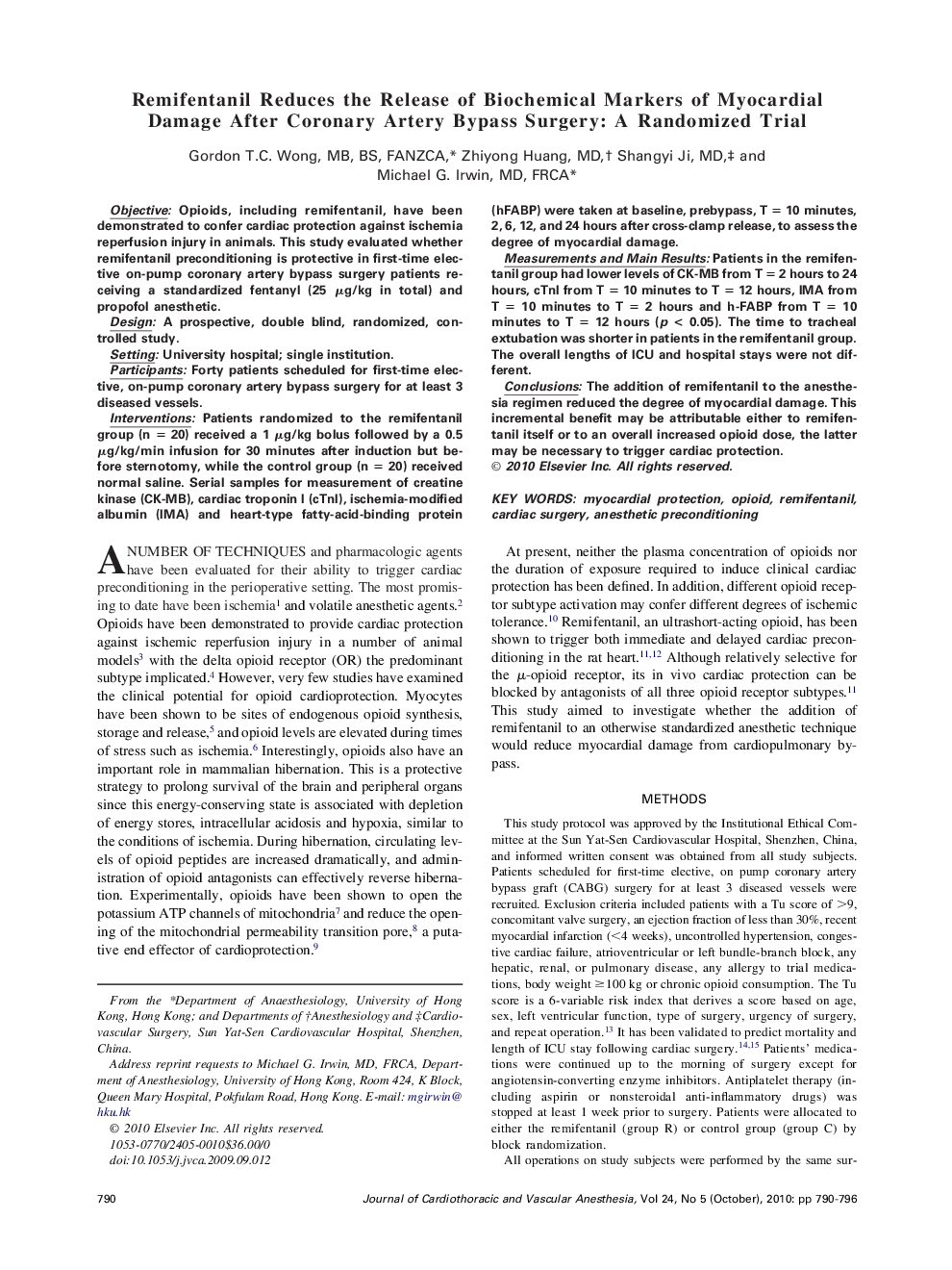| کد مقاله | کد نشریه | سال انتشار | مقاله انگلیسی | نسخه تمام متن |
|---|---|---|---|---|
| 2760971 | 1150185 | 2010 | 7 صفحه PDF | دانلود رایگان |

ObjectiveOpioids, including remifentanil, have been demonstrated to confer cardiac protection against ischemia reperfusion injury in animals. This study evaluated whether remifentanil preconditioning is protective in first-time elective on-pump coronary artery bypass surgery patients receiving a standardized fentanyl (25 μg/kg in total) and propofol anesthetic.DesignA prospective, double blind, randomized, controlled study.SettingUniversity hospital; single institution.ParticipantsForty patients scheduled for first-time elective, on-pump coronary artery bypass surgery for at least 3 diseased vessels.InterventionsPatients randomized to the remifentanil group (n = 20) received a 1 μg/kg bolus followed by a 0.5 μg/kg/min infusion for 30 minutes after induction but before sternotomy, while the control group (n = 20) received normal saline. Serial samples for measurement of creatine kinase (CK-MB), cardiac troponin I (cTnI), ischemia-modified albumin (IMA) and heart-type fatty-acid-binding protein (hFABP) were taken at baseline, prebypass, T = 10 minutes, 2, 6, 12, and 24 hours after cross-clamp release, to assess the degree of myocardial damage.Measurements and Main ResultsPatients in the remifentanil group had lower levels of CK-MB from T = 2 hours to 24 hours, cTnI from T = 10 minutes to T = 12 hours, IMA from T = 10 minutes to T = 2 hours and h-FABP from T = 10 minutes to T = 12 hours (p < 0.05). The time to tracheal extubation was shorter in patients in the remifentanil group. The overall lengths of ICU and hospital stays were not different.ConclusionsThe addition of remifentanil to the anesthesia regimen reduced the degree of myocardial damage. This incremental benefit may be attributable either to remifentanil itself or to an overall increased opioid dose, the latter may be necessary to trigger cardiac protection.
Journal: Journal of Cardiothoracic and Vascular Anesthesia - Volume 24, Issue 5, October 2010, Pages 790–796